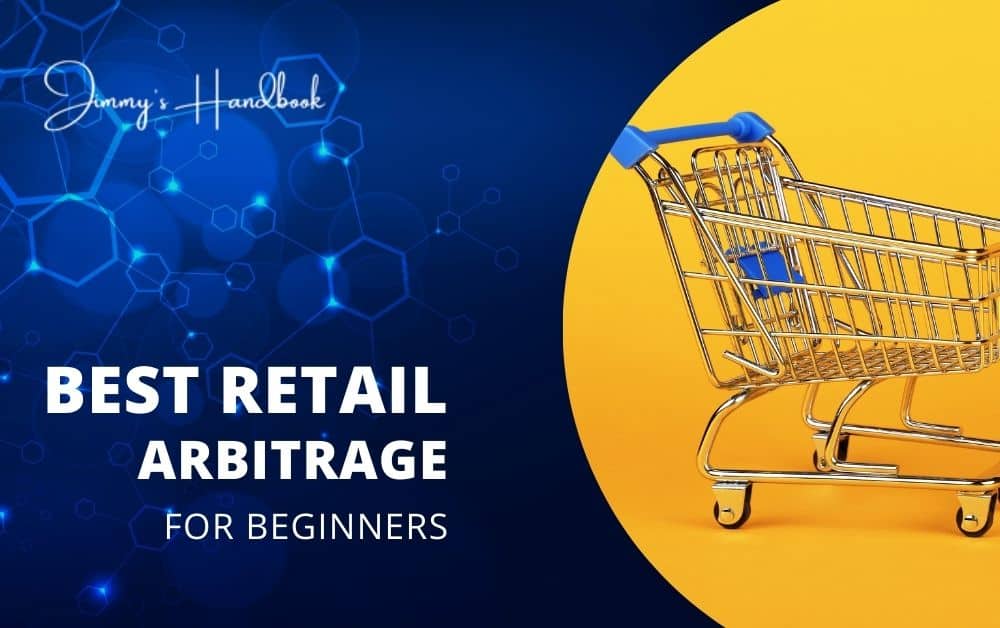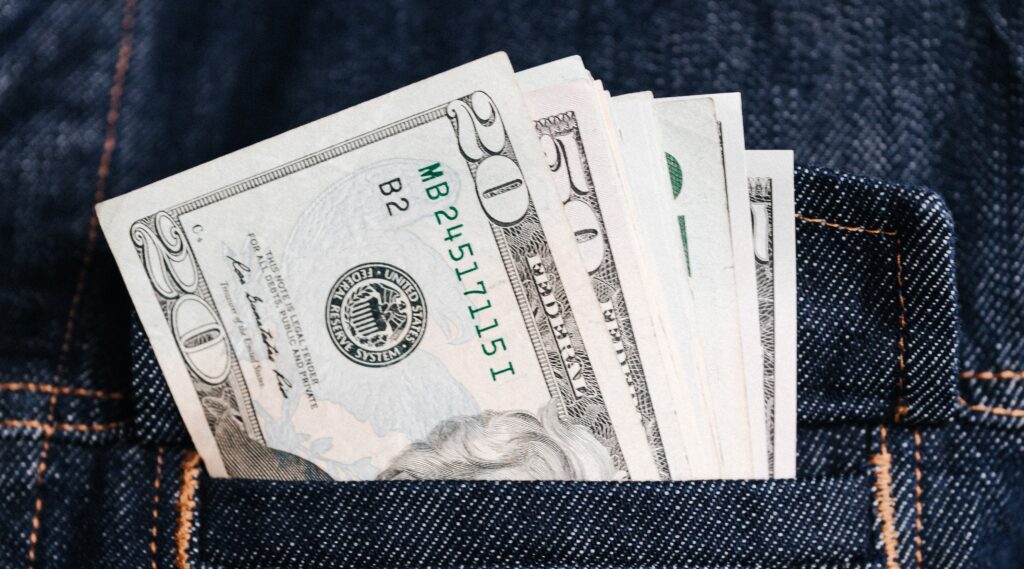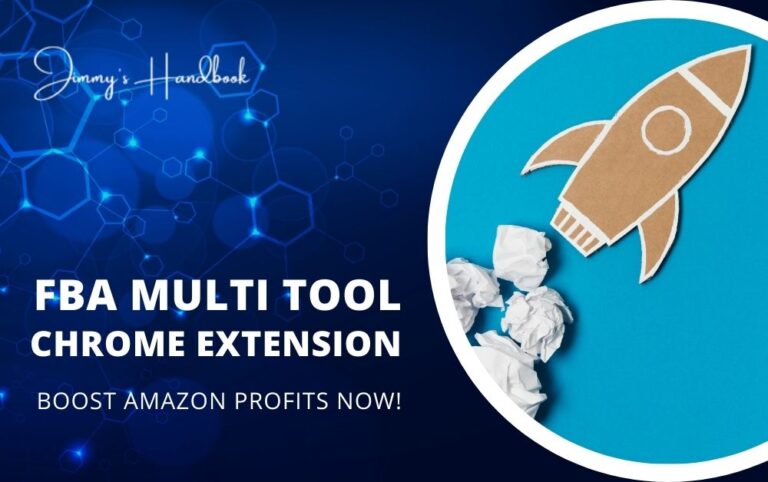
Finding the best retail arbitrage is buying and reselling products at a profit. It can be a flexible way to make money, especially for beginners, as it requires little upfront investment and can be done part-time or full-time.
What’s the Best Retail Arbitrage?
The best retail arbitrage refers to buying products at a low price from one retailer and then reselling them at a higher price at another retailer or online location, such as Amazon FBA.
It can be a lucrative way of making money by taking advantage of price differences between stores or online marketplaces.
There are a few key factors to consider when looking for the best retail arbitrage opportunities:
Overall, the best retail arbitrage product opportunities will depend on the location and the products available to you. It can be helpful to research retailers in your area and products using tools such as BuyBotPro or FBA MultiTool when you sell on Amazon FBA to find the best deals and the most in-demand products.
Can Retail Arbitrage Earn You a Profit?

For example, if you find a product sold for $20 at one retail store and $100 on Amazon, you can buy the product at the lower price of $20 and then resell it at the higher cost of $100, earning a profit of $80.
Of course, when calculating your potential profit, you will need to factor in any seller fees associated with the product and the cost of shipping the product to the fulfilment center.
Top Tip:
One vital component is ensuring the product you buy is the exact item sold on Amazon.
Amazon arbitrage can be a gamble without the proper research, as it can be challenging to predict how much a product will sell for or how quickly it will sell.
However, by carefully researching different retailers and online marketplaces, you can increase your chances of finding the best retail arbitrage opportunities and earning a profit.
Why Stores Markdown Clearance Items and Not Sell them Online?
There are a few reasons stores might mark down products instead of selling them online.
- Clearance or end-of-season sales: Stores may mark down products at the end of a season or when they discontinue a particular product line. These markdowns clear inventory and allow new products or faster selling lines.
- Overstock: If a store has too much of a particular product in stock, they may mark it down in an attempt to sell it quickly.
- Damaged or imperfect products: Stores may mark down damaged products or have some other imperfection, such as a scratch, dent, or marks on the packaging.
- Changing consumer tastes: Stores may mark down products out of season, but this may not be a disadvantage to you as online stores can have a wider reach of customers compared to traditional retailers.
- Lack of facility: A retail store may need help to sell markdown items online due to the cost of storage, trained colleagues, and budget for promoting clearance.
By marking down products instead of selling them online, stores can still generate some revenue from these products rather than disposing of them entirely.
Does Retail Arbitrage Work?

There are many cases of successful retail arbitrage businesses, with some individuals and companies making a significant amount of money through this practice. Here are a few examples of successful retail arbitrage businesses:
- Ryan Grant: Ryan Grant is a well-known retail arbitrage expert and author who has built a successful business by sourcing products at a low price and reselling them for a profit. He has written a book on the subject and runs a popular blog and YouTube channel sharing tips and strategies for best retail arbitrage practices.
- Jessica and Cliff Larrew: Jessica and Cliff Larrew are a married couple who have built a thriving retail arbitrage business using the Amazon FBA (Fulfillment by Amazon) program. They source products from various retailers and then sell them on Amazon, using the company’s fulfillment services to handle shipping and customer service.
- Spencer Haws: Spencer Haws is an entrepreneur and retail arbitrage expert who has built a successful FBA business by sourcing low-price products and reselling them on the Amazon Marketplace. He ended up selling his business in 2018 for $425,000.
These are just three examples of successful retail arbitrage businesses, but many more exist out there. Retail arbitrage businesses can be a great way to make money, but it requires research, strategy, and hard work to be successful and make a profit.
Why Does Retail Arbitrage Still Work?
Getting started in retail arbitrage is one of the first steps to resell on Amazon. There is always demand for certain products, and finding items at a local store is even better.
Another reason retail arbitrage still works is that it is a relatively low risk for individuals and small businesses to get started. Many online marketplaces, such as Amazon or eBay, allow anyone to sell products (with some restrictions at first, e.g. you may need to un gate categories on Amazon) with minimal upfront investment. This path allows people with limited resources to enter the market and profit through retail arbitrage.
Whenever there is a barrier to entry, such as technical skill, time, or the ability to find deals, there will always be opportunities for some people with determination to succeed.
Where Can You Find Inventory For Retail Arbitrage?

- Physical stores: You can find inventory for retail arbitrage at physical stores, such as discount stores, dollar stores, department stores, and specialty stores. Look for products that are significantly cheaper at one retailer compared to others.
- Manufacturer closeouts: Manufacturers sometimes sell their excess inventory at a discounted price.
- Estate sales: Estate sales can be a good source of inventory for retail arbitrage, as they often feature various products at discounted prices.
- Thrift stores: Thrift stores can be a good source of inventory for retail arbitrage, as they often have a mix of new and used products at discounted prices.
- Flea markets: Flea markets can be a good source of inventory for retail arbitrage, as they often have a wide variety of products at discounted prices.
- Liquidation store: A liquidation store, where a store or company is closing down, can be a good source of new inventory at a low price.
- Wholesale clubs: Wholesale clubs, such as stores like Costco and Sam’s Club, can be a good source of inventory for retail arbitrage, as they often have a wide variety of products at discounted prices with replenishable sources of stock.
- Manufacturer overstocks: Manufacturers sometimes sell excess inventory at a discounted price. It can be another good source of stock for retail arbitrage.
Some of the best stores for retail arbitrage can be the ones you shop at all the time, including Walmart, Target, Best Buy, Lowes, and T.J. Maxx, to name just a few.
Top Tip:
Remember to check the clearance rack in all these stores.
Online Arbitrage Vs. Retail Arbitrage

Online and retail arbitrage are both methods Amazon FBA sellers use when buying low-price products to resell for a profit. However, there are some critical differences between the two:
- Source of inventory: Online arbitrage involves sourcing products from online retailers or marketplaces, while retail arbitrage involves sourcing products from physical stores.
- Price comparisons: Online arbitrage involves comparing prices on different online retailers or marketplaces, while retail arbitrage involves comparing prices at other physical stores.
- Shipping: Online arbitrage often involves having the products shipped directly to you, while retail arbitrage involves physically going to the store to purchase the products.
- Fees: Online marketplaces like Amazon may charge fees for selling products, while physical stores do not.
Online and retail arbitrage has the potential to make money by reselling products on Amazon. The right approach for you will depend on your personal preferences and circumstances.
Top Tip:
Sign up for cashback sites for online arbitrage purchases to save money with coupon codes.
Some people prefer online arbitrage because it allows them to source stock online from retailers. It’s convenient as they can order stock and deliver it to their homes.
Others prefer retail arbitrage because it allows them to physically inspect the products before purchasing them. Try both approaches to see which one works best for you.
How Much Does It Cost To Start Retail Arbitrage On Amazon?

Retail arbitrage is a great way to start a part-time income and grow it into a full-time business. One of the great things about this type of business is you can go at your own pace and invest as much as you want whilst you increase your confidence in the deal analysis and finding out the best categories for retail arbitrage items you can source.
Top Tip:
Start selling a product you know about and then build your knowledge base over time.
Retail Arbitrage Tips
- Check local retail stores to save money on fuel.
- Some of the best items are in the clearance section.
- Stores for retail arbitrage sourcing sometimes only allow you to buy limited quantities. This is something to bear in mind.
- Use the Amazon seller app to check if you can or can’t sell a product.
- Discounted products can be anywhere in the store, so keep an eye out.
- Save money on profitable products by using coupon codes.
- Create a travel route of the best places you find to buy stock.
- Use a scanner app like BuyBotPro to analyze deals on the go.
- Start small, buying sub-$20 items until you become confident in your skills.
- Some retail arbitrage sellers lose motivation if they don’t find any deals. Don’t give up. You’ll notice great deals eventually.
- Replenishable items for retail arbitrage are often high in demand and may have slim profits. Make sure you’re not losing money.
Tools You May Need for Retail Arbitrage

There are a few essential tools that can be useful for retail arbitrage:
Laptop or Computer: You will need this to set up and monitor your Amazon account, create shipments, reply to messages, and print labels.
Cellphone: You will need this to check if deals are profitable and if you are eligible to sell the product.
Deal analysis software: This tool carries out technical processes and research to give you all the information you need to make an informed decision when buying stock.
- BuyBotPro – This tool has a deal analyzer, sourcing, and scanning tools. The exciting thing about BuyBotPro is that Amazon sellers design it for Amazon sellers.
- Keepa – Allows users to track the historical prices, trends, and quantity sold by counting the drops in sales rank.
- FBAMultiTool – FBAMultiTool is an analysis tool that uses data points to perform thorough research to help you make informed decisions on purchasing inventory for Amazon FBA, similar to BuyBotPro.
Shipping supplies: You will need various shipping supplies, such as large Amazon consignment boxes, bubble wrap, clear safety bags with suffocation warnings, packing tape, and white product labels.
Printer: A regular inkjet would be OK to start with, but a thermal label printer and a laser printer will make your job easier when you are more established.
Barcode Scanner: This will streamline assigning products to a consignment.
Using these tools, you can streamline finding and reselling products, making running a successful retail arbitrage business easier.
Conclusion
Although finding the best retail arbitrage deals can be difficult, it can also be a very successful and rewarding business model for earning money on Amazon.
The degree of skill is critical for overcoming obstacles on Amazon. There is a lot of competition on the site, making it challenging to stand out and make a profit. A seller’s account can be suspended or terminated for violating Amazon’s strict regulations, which are already in force.
However, suppose you can find great arbitrage opportunities and run your business successfully using some of the tools or methods suggested. In that case, it is possible to find retail items to flip online and make money on Amazon.







One Comment